Foreign Correspondent (1940)
Directed by: Alfred Hitchcock
Written by: Charles Bennett, James Hilton, Joan Harrison, Robert Benchley
Starring: George Sanders, Herbert Marshall, Joel McCrea, Laraine Day
HCF REWIND NO. 175: FOREIGN CORRESPONDENT [1940]
AVAILABLE ON DVD
RUNNING TIME: 120 min
THE HITCHCOCK CAMEO: After Johnny Jones leaves his hotel in London, Hitchcock, almost directly in front of him, is walking down the street wearing a coat and hat and looking down while reading a newspaper.
REVIEWED BY: Dr Lenera, Official HCF Critic
The editor of the New York Globe is concerned about the “crisis” in Europe and the inability of celebrated foreign correspondents in getting answers about whether or not war will ensue. After searching for a good, tough crime reporter for a fresh viewpoint, he appoints Johnny Jones as a foreign correspondent, under the pen name ‘Huntley Haverstock’. His first assignment is Stephen Fisher, leader of the Universal Peace Party, at an event held by Fisher in honour of a Dutch diplomat named Van Meer, but Van Meer disappears mysteriously. Fisher informs the guests that Van Meer, who was supposed to be the guest of honour, will not be attending the party and will instead be at a political conference in Amsterdam, but at the conference Van Meer is shot….
Despite its many qualities, Rebecca can’t have felt much like a Hitchcock picture at the time and even now stands apart from most of his other work. Foreign Correspondent, on the other hand, totally feels like one. It’s an obvious attempt to make a film in the style of some of his British classics, especially The 39 Steps, mixing suspense, action, romance and humour in a story which is partly a series of set pieces strung together, but this time with a big Hollywood budget. There is a great sense of the director relishing the opportunity to do stuff which he wouldn’t have been able to do before, and it’s a highly enjoyable film, though I don’t think it reaches the high level of Hitchcock’s best films of this kind. Though the dialogue often sparkles, the story feels very ‘patched together’, it being rather obvious that a large number of writers worked on the script, to the extent that you could lose some sequences with no damage to the plot. Also, the film doesn’t really flow, the romantic element – usually so well handled in a Hitchcock film – doesn’t convince, and the hero is weakly played, leaving a hole at the centre of the film. It’s quite easy to ignore its flaws though, because Foreign Correspondent still thoroughly entertains and is rarely dull.
Producer Walter Wanger bought the rights to journalist Vincent Sheean’s memoirs Personal History in 1935. 14 writers in all were involved in bringing the story, which strayed far from the book and ended up borrowing more bits from the novel of The 39 Steps, to the screen, the bulk of it by Charles Bennett and Joan Harrison, though only four were credited. David O. Selznick slowed down his producing for a bit, so began to loan Hitchcock out to other producers, thereby still making plenty of money. Hitchcock wanted Gary Cooper and Joan Fontaine for the lead roles, but Cooper wasn’t interested in doing a thriller at the time [later telling Hitchcock he regretted the decision] and Selznick would not loan out Fontaine. Wanger and Hitchcock clashed repeatedly during shooting because Wanger kept wanting to have the script rewritten due to events happening in Europe. The expensive production had to accommodate large-scale sets, and second-unit shooting had to be redone because the equipment and stock was destroyed when the ship they were on was torpedoed. After the film wrapped, Hitchcock visited his native England, and returned to report that it was expected that the Germans would begin bombing London at any time. To accommodate this, Ben Hecht, whose quick writing ‘saved’ many a film, was called in to write a new epilogue of the film, replacing the hero Johnny Jones and Scott Fflolliott saying how the Germans will likely cover up everything. This time, Johnny broadcasts over the radio to America, exhorting people to stand firm and make ready. Another critical and commercial hit, it was called, “ a masterpiece of propaganda” by Joseph Goebbels in Germany, where it wasn’t shown until 1960 and even then heavily cut.
Indeed, Foreign Correspondent is an obvious propaganda piece. The specifics of much of its plot remain vague [the MacGuffin, despite seemingly being very important this time, is still typically thrown away and actually feels like an afterthought] and its villains are not given a nationality, but any intelligent viewer in 1940 could have worked things out, while the hero is very much your average uncommitted American who by the end is fully committed to battling Nazism. There are also little details dotted throughout the film, like a cartoon-like image of Adolf Hitler formed by a wood beam and unidentified markings: Hitchcock’s almost subliminal reminder of who the bad guys really represent. Sometimes this stuff is overdone, like falling letters changing a hotel sign from HOTEL EUROPE to HOT EUROPE. And that finale scene really does feel tacked on and, to modern eyes, weakens the film, despite the fact that, due to the Production Code, Germany could not be specified and America could not actually be asked to go to war. The early scenes of Foreign Correspondent don’t work too well either, largely because star Joel McCrea barely seems to act except for barking out his lines as fast as he can to keep the film’s running time to two hours. This type of delivery certainly works for lightning-paced, razor-sharp comedies of the time like His Girl Friday, but not for a thriller, even a thriller with comic elements, though much of the supposed humour here, like a short Latvian diplomat with gooey eyes, falls flat.
Jones virtually seems to be leering at Carol Fisher when he first meets her, then annoyingly pesters her with notes, but after nearly half an hour the thrills starts, and for quite a while Foreign Correspondent maintains a modern-style action movie pace as a guy is shot [bloodily in the face!] in the rain surrounded by black umbrellas, there’s a car chase [which uses the already hackneyed gag of a person unable to cross the road because of the speeding vehicles], Johnny spying on the bad guys in a windmill and getting his jacket caught in one of the sails, Johnny making a Jason Bourne-style getaway on the outside of a hotel, and, best of all, a lengthy sequence where an assassin has been hired to kill Jones. This being Hitchcock, he’s a small, unassuming, old guy played by Edmund Gwenn. First he tries to push him into the road, then that failing, he takes him to the top of Westminster Cathedral. The suspense superbly builds and builds until you almost want the other people at the top to bugger off so ‘Rowley’ can do his business. After all this the pace falters a little, but then it all climaxes spectacularly with a great plane crash that still looks really impressive in these days of CGI. Footage taken from a stunt plane diving over the ocean was rear projected on rice paper in front of the cockpit set, while behind the rice paper were two chutes aimed at the cockpit’s windshield, connected to large water tanks. The water broke through the rice paper at the right moment, simulating the crash of the plane into the ocean.
Modern viewers might find it hard to understand a moment where Carol gets upset at Johnny for booking two hotel rooms for them side by side, supposedly indicating that they would have sex, though the humour/tragedy is that Johnny is barely aware of how his actions are being read, as his mind is fixed on more important matters. After Rebecca, there is another cute proposal scene, with the two both saying the words and him saying, “that cuts down our love scene quite a bit”, though it seems to happen far too early. There is sharp writing throughout, but also some clumsy writing, and one feels that the script could have done with at least one more thorough going-over. George Sanders, actually rather likeable for once, plays another reporter, and there is a section of the film where he seems more the hero than Johnny and Johnny himself is off-screen, but wouldn’t it have been better if they’d just merged the two characters into one? The lavish sets, including an Amsterdam square and a bit of Waterloo Station which is on-screen for barely a minute, do help give the film a lavish, expansive feel, though the London scenes lack the feel of the ones in Sabotage, Hollywood cliché and gloss replacing the earlier colour and quirkiness.
Laraine Day, playing a heroine who is the hero’s equal in every way, almost makes up for the weakness of McCrea with her lively performance. German actor Albert Bassermann, who learned all his lines phonetically, is very touching as the Dutch diplomat Van Meer, while comedian Robert Benchley makes a funny appearance as an alcoholic reporter. There’s a really effective scene where Van Meer is being tortured and we just hear his cries of pain, a great example of censorship actually being an advantage because of what our imagination can conjure up. Alfred Newman’s score gives us a pleasant jaunty theme for Johnny, a lovely romantic theme and much dramatic music. It’s a good score, though occasionally intrusive and not among the great composer’s best works. Foreign Correspondent suffers from some carelessness and doesn’t really hang together, being one of those Hitchcock films where you don’t remember the story but instead think of it as, “the film where This happened and That happened”. Though held back from being one of his true greats, it’s still solid escapism, albeit escapism with a serious purpose, and packs a hell of lot into its two hours. I guess I’ve been criticising Foreign Correspondent as much as praising it, but that’s what happens when the general level of this filmmaker is so high.

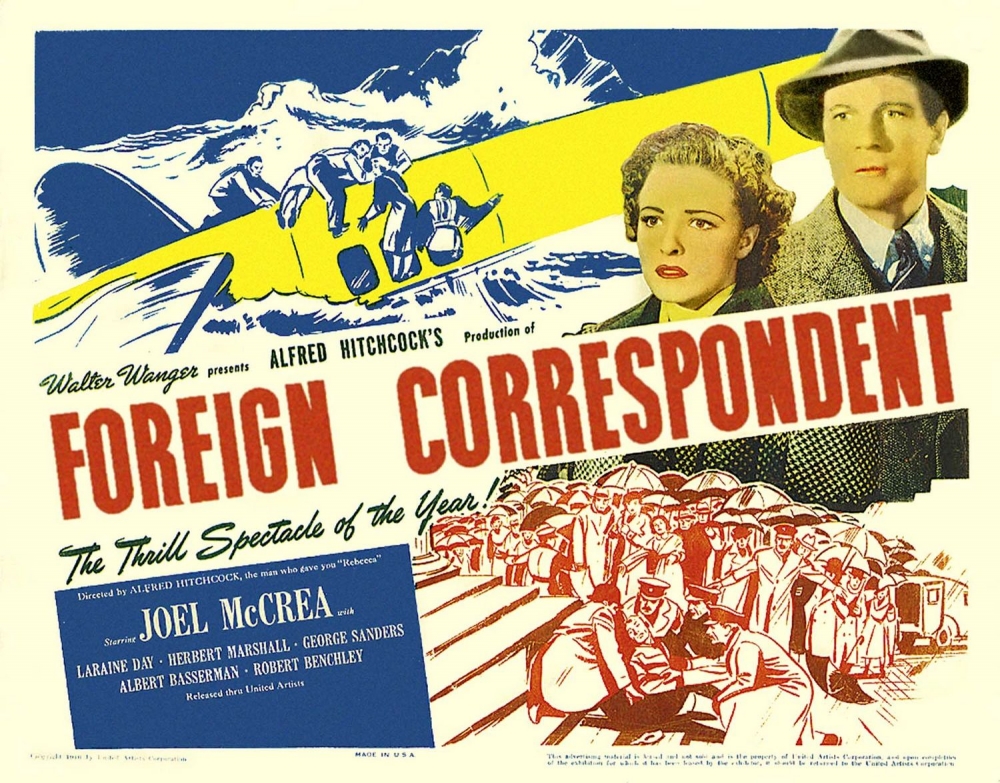
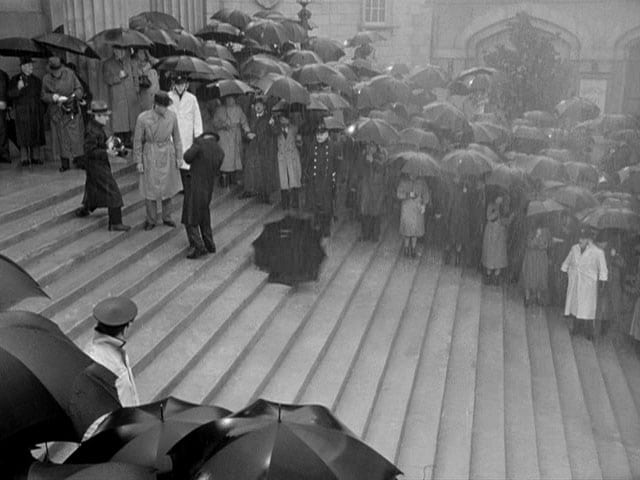
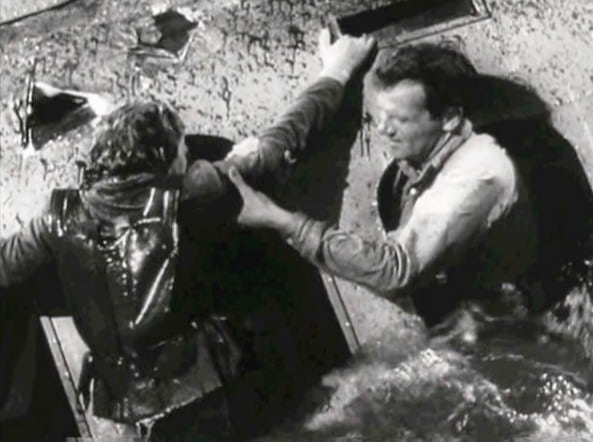




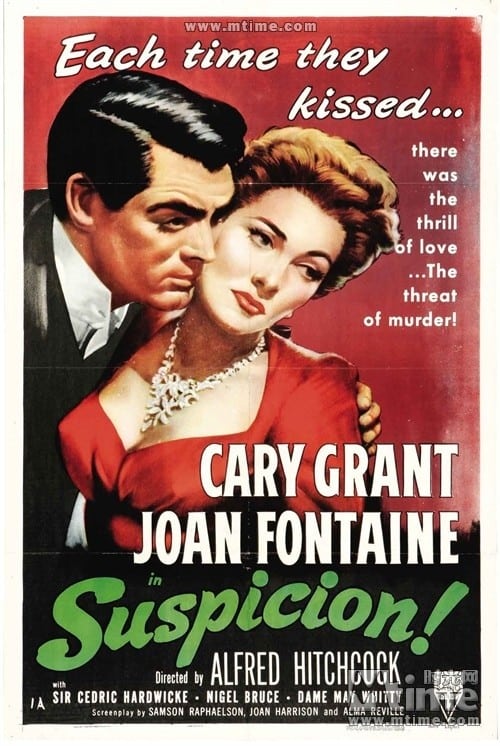
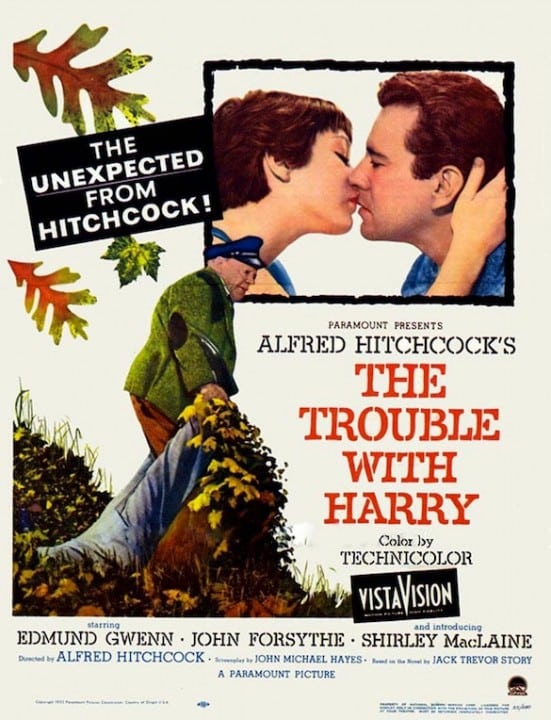
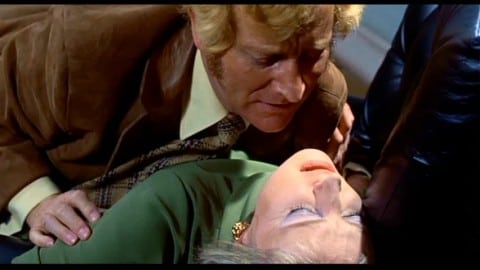
Be the first to comment